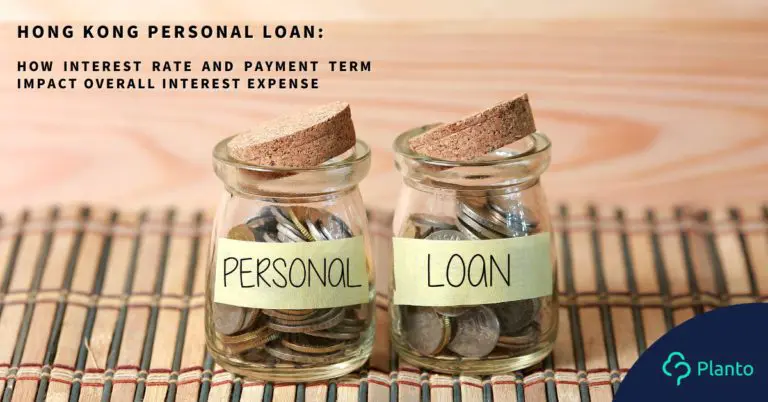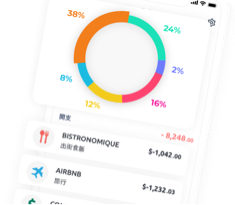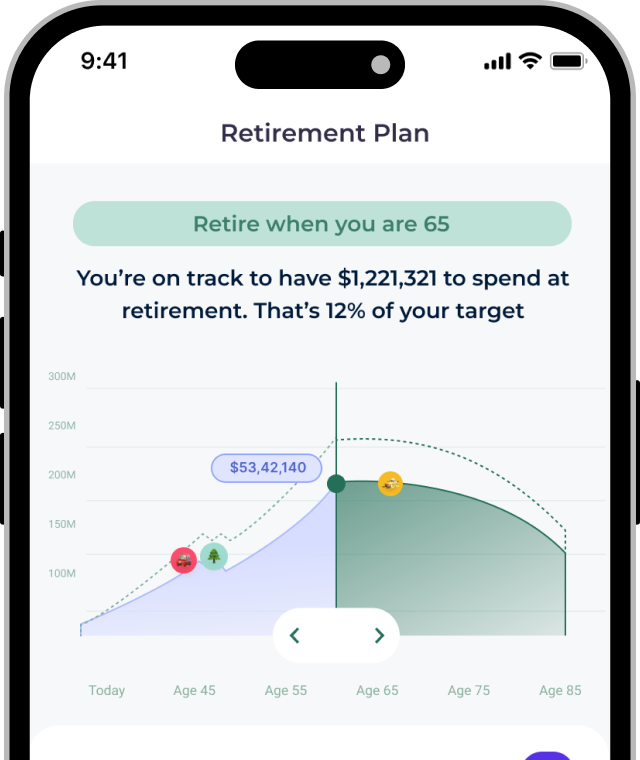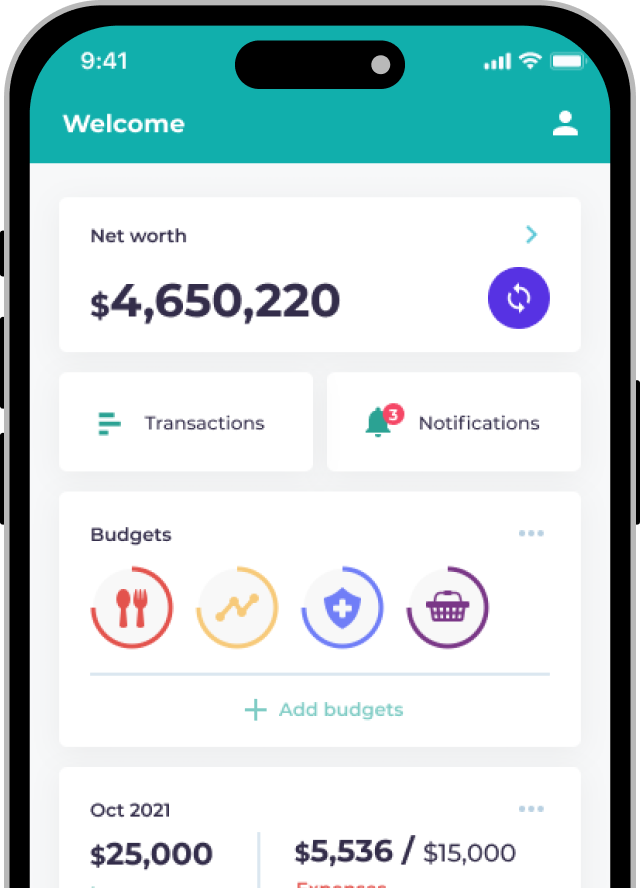According to a recent consumer financial hardship study published by TransUnion, between 30% to 40% of Hong Kong consumers are concerned about their ability to pay back personal loan and credit card. The repayment of such financial products include both principal and interest (personal loan interest, credit card overdraft etc.).
In this article, we will examine the impact on overall interest expense from key factors such as interest rate and payment term.
Highlights:
- What factors determine your personal loan interest rate?
- Longer payment term generally results in higher interest expense
- 3 scenarios showing interest expense impact from interest rate and payment term
- Learn about the personal loan offer from a Hong Kong virtual bank
What factors determine your personal loan interest rate?
Interest rate varies depending on your credit score, loan type and the lender.
There are a wide range of lending products available in Hong Kong including personal loan, tax loan, overdraft, credit card advance and others. Depending on your credit profile, loan type and the lender, your interest rate can vary between 2% to 30%+
- Credit score: In Hong Kong, your credit score is typically measured by TransUnion credit score which range from AA (super prime) to JJ (Subprime) in alphabetical order. In general, consumers with better credit score (closer to AA) will get lower interest rate
- Loan type: Personal loan and tax loan tend to have much lower interest rate than overdraft and credit card advance
- The lender: Risk assessment tends to vary from one lender to another, this means same consumer is likely to get offer with different interest rates from different lenders
Longer payment term generally results in higher interest expense
Interest is generally measured and offered in Annualised Percentage Rate (APR) which indicates actual yearly interest expense without taking into consideration the effect of compounding. Personal loan tends to compound on a monthly basis which is inline with monthly payment schedule.
In general, loan with longer payment term will have higher interest expense due to longer exposure to compounding effect.
3 scenarios showing interest expense impact from interest rate and payment term
To visualize the impact in numbers, we have prepared 3 calculations below:
Scenario 1: HK$150k personal loan with the same payment term but different interest rate
| Mortgage – Overseas package – Interest rate: 3% – Term: 3 years | Personal loan – Hong Kong package – Interest rate: 9% – Term: 3 years |
| Monthly repayment: HK$4,362 | Monthly repayment: HK$4,770 |
| Total interest expense: HK$7,039 | Total interest expense: HK$21,719 |
| Total repayment: HK$157,039 – Principal 96% – Interest 4% | Total repayment: HK$171,719 – Principal 87% – Interest 13% |
As illustrated in the calculation above, higher interest rate will result in higher interest expense which generally come back in a form of higher monthly repayment. In this case, 3x higher interest rate will mean 3.1x higher in total interest expense due to compounding effect.
Scenario 2: HK$150k personal loan with the same interest rate but different payment term
| Mortgage – Overseas package – Interest rate: 3% – Term: 2 year | Personal loan – Hong Kong package – Interest rate: 3% – Term: 4 years |
| Monthly repayment: HK$6,447 | Monthly repayment: HK$3,320 |
| Total interest expense: HK$4,732 | Total interest expense: HK$9,367 |
| Total repayment: HK$154,732 – Principal 97% – Interest 3% | Total repayment: HK$159,367 – Principal 94% – Interest 6% |
Longer payment term will generally lower monthly repayment requirement, however the total interest expense will be higher as the interest gets compounded over a longer period of time. In this case, while the payment term is 2x longer, total interest expense only increase by 1.9x as the principal reduces over time due to monthly repayment.
Scenario 3: HK$150k personal loan with different interest rate and payment term
| Mortgage – Overseas package – Interest rate: 3% – Term: 2 year | Personal loan – Hong Kong package – Interest rate: 9% – Term: 4 years |
| Monthly repayment: HK$6,447 | Monthly repayment: HK$3,733 |
| Total interest expense: HK$4,732 | Total interest expense: HK$29,172 |
| Total repayment: HK$154,732 – Principal 97% – Interest 3% | Total repayment: HK$179,172 – Principal 84% – Interest 16% |
When higher interest rate is combined with longer payment term, the increase in total interest expense will naturally be more prominent. In scenario 3 above, while the principal remains the same at HK$150k, the difference in total interest expense is as high as ~HK$25k.
Key takeaways
While an ideal scenario for every consumer would be to take loan at lower interest rate and shortest payment term possible – in reality, there are many restrictions such as your credit score or monthly income/saving which may prevent you from paying back your loan quickly. It is advisable that you:
- Understand your credit score: Consumers with better credit score tends to get lower interest rate. You can check your credit score by getting a TransUnion report or apply for loan with a digital lender like Airstar who shows your credit score as part of the journey (note that every loan application will impact your credit score)
- Understand your monthly cashflow: Having a good understanding of your monthly cashflow and saving will allow you to clearly calculate payment term. It is advisable that personal loan should only be considered if A) you have emergency saving and B) you are still able to save money after regular expenses and repayment on a monthly basis. If you do not have a clear understanding of your monthly cashflow, mobile app like Planto can help you to automatically calculate and keep track of your income and spending on a monthly basis
Recommended Readings
- HK Homeowners Gain Tax Advantages by Transferring Property Ownership. Here’s How it Works and the Risks
- Airstar Bank Personal Loan〡 Instant Approval Online〡Exclusive Cash Rebate
To borrow or not to borrow? Borrow only if you can repay!


















